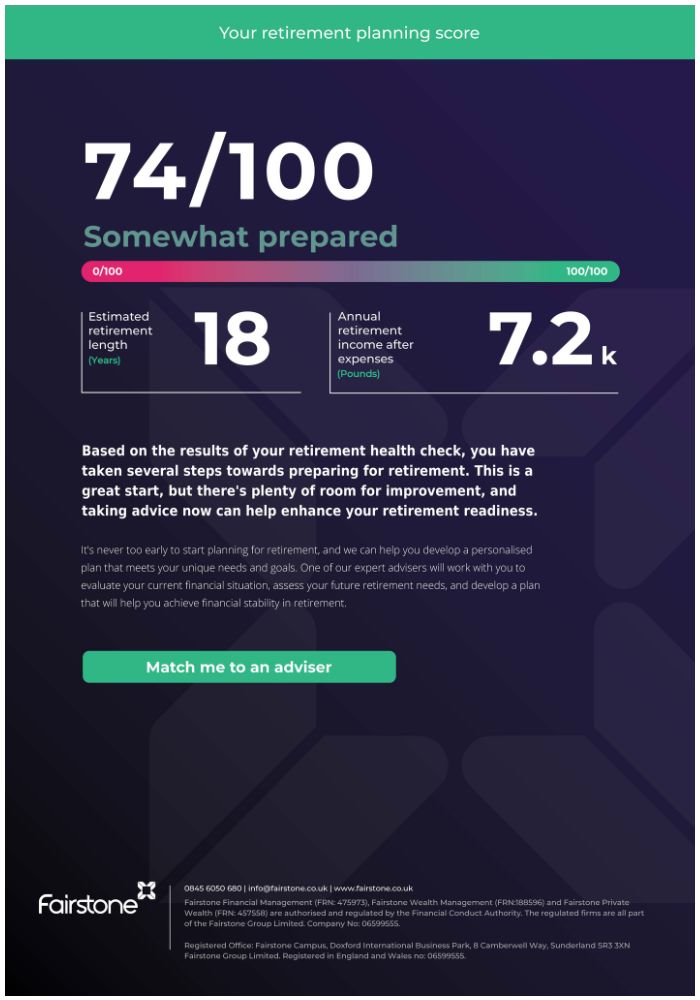
Pension & retirement

If you are a doctor and are part of the NHS pension scheme, that’s a good starting point – but on its own, it might not provide you with your dream retirement.
Here we take a look at the top 10 mistakes doctors make when it comes to retirement planning, as well as tips on how to avoid them to help make sure your golden years are just what the doctor ordered!
One of the most significant mistakes doctors make is delaying retirement planning. Time is a valuable asset when it comes to saving and investing, so starting early is crucial. The longer you wait, the less time you have to take advantage of compounding interest.
Failing to accurately estimate retirement expenses is another common mistake. Doctors often overlook costs like healthcare, long-term care, and travel.
To avoid this, you need to thoroughly and honestly evaluate your expected retirement lifestyle and account for all potential expenses to ensure your savings are sufficient.
Accumulating substantial debt can jeopardise your retirement plans. High-interest debts, such as student loans or credit card debt, can drain your income and limit your ability to save for retirement.
Prioritise debt repayment to reduce financial burdens in your retirement years.
Many doctors assume their high income alone will secure a comfortable retirement. However, overlooking saving and investing can be detrimental. Develop a comprehensive savings strategy that includes contributions to retirement accounts and investments to create a diversified income stream.
DIY Retirement Health CheckComplete our retirement health check today. Answer 5 quick questions to determine whether you’re ready for retirement. |

|
Not taking full advantage of pension contributions is a significant oversight. As a doctor you should aim to maximise contributions to tax-advantaged accounts like workplace pensions and ISAs. These contributions provide both tax benefits and potential growth.
Investing all your retirement savings in a single asset or investment class can expose you to unnecessary risk.
Diversification is essential to mitigate risk and achieve long-term growth. Allocate your investments across a mix of stocks, bonds, funds, and other suitable options based on your risk tolerance.
Failing to account for inflation can erode your purchasing power over time. Consider the long-term effects of inflation on your retirement savings and adjust your goals and contributions accordingly.
Investments with the potential to outpace inflation can help protect your retirement income.
Doctors are exposed to professional and personal liability and without adequate protection, this could impact future retirement savings.
Make sure you seek expert legal and financial planning advice to establish protection, trusts and estate planning.
Planning for a successful transition out of your medical practice is crucial. Failing to establish a solid succession plan can impact retirement finances. Start early and consider options like selling the practice, bringing in a partner, or developing a succession plan that ensures a smooth and profitable transition.
Setting a retirement plan in motion is not enough; it requires ongoing evaluation and adjustments. Life circumstances, market conditions, and personal goals can change over time. Regularly review your retirement plan, reassess your goals, and make any necessary changes to stay on track.
In the realm of retirement planning, it is crucial to recognise the importance of seeking professional assistance. Just as you wouldn’t perform your own surgery or diagnose your own ailments, tackling complex financial matters without expert guidance can be equally risky.
Doctors understand the value of specialised knowledge and entrusting their patients’ well-being to qualified professionals. Likewise, when it comes to securing your financial future, it’s prudent to consult with trusted advisers like Fairstone who can provide the expertise and guidance necessary for a successful retirement journey.
| Complete our retirement health check | Match me to an adviser |